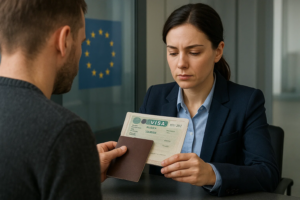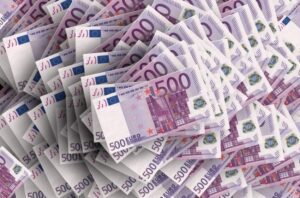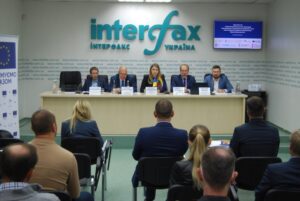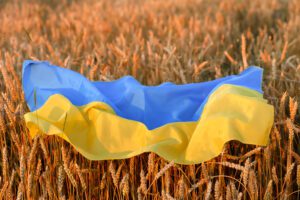
The European Commission is considering tightening the conditions for Russian citizens to obtain Schengen tourist visas. At present, short-term visas continue to be issued to Russians in 17 Schengen countries, including Austria, Germany, Italy, Spain, and France.
Among the measures under consideration are:
– increasing the processing time for visa applications from the current 10 to 15 days, with the possibility of extending it to 45 days,
– introducing stricter controls on document compliance and strengthening measures against abuse.
As part of the preparation of a new, 19th package of sanctions against Russia, a clause on a complete ban on the issuance of Schengen tourist visas is being discussed — the proposed option may be included in the package, which is expected to be presented on September 12.
The main impetus for this initiative is the sharp increase in the number of tourist trips by Russians to Schengen countries in the summer months of 2025, which raises concerns about the possible use of tourist trips to prepare malicious actions within the EU.
In 2024, Russians submitted about 606,600 applications for Schengen visas and received about 552,600 visas, an increase of 16-21% compared to the previous year.
Russia ranked fifth in the world in terms of the number of Schengen visas obtained, behind only China, Turkey, India, and Morocco.

On Monday, the European Commission is signing a new budget support program with Ukraine in the amount of EUR 500 million.
The corresponding announcement in Brussels on Monday was made by the representative of the European Commission, Eric Mamer, talking about the documents to be signed within the meeting of the Council of the Ukraine-EU Association.
Mamer said on the sidelines of the Council, the European Commission is signing four sectoral agreements with Ukraine to further strengthen Ukraine’s cooperation with the EU. According to him, first, the European Commission and Ukraine are signing a new EUR 500 million budget support program as part of a pledge announced by the President as part of the Support Campaign for Ukraine in April and at a high-level conference held in Warsaw in May. This funding will guarantee housing and education for internally displaced persons, and will also support the agricultural sector, Mamer said.
The European Commission will also sign a number of other agreements. Among them is the participation of Ukraine in the European Union’s program “Digital Europe,” another agreement will allow Ukraine to participate in the tax program.

The European Commission has put forward a draft EU proposal for Ukraine to be invited to join the Common Transit Conventions (CTC) – an international framework for the customs transit of goods that ensures simplified procedures between the EU and partner countries.
“Ukraine fulfils all relevant criteria for admittance to the Conventions, including legal, structural and IT requirements,” the draft EU proposal, adopted on Friday, says.
In the draft EU position paper adopted today, the Commission takes the view that “furthermore, accession to these Conventions is foreseen in the EU-Ukraine Association Agreement and in the EU’s pre-accession strategy for Ukraine.”
The Conventions mean that goods can move much more easily between the EU and the seven so called Common Transit Countries (Norway, Iceland, Switzerland, North Macedonia, Serbia, Turkey and the UK).
In this way, the simplified rules, such as mutually recognised financial guarantees for customs transit and less controls, help to cut down on costs for EU and partner country businesses, while facilitating and boosting trade, the European Commission said in a press release.
Once endorsed by the EU Council, the EU’s position will be put forward to the highest body of the Conventions, the EU-CTC Joint Committees, made up of the EU and other CTC signatories, which can then formally invite Ukraine to join the Conventions by as early as 1 October.

The EU is working on the creation of solidarity lines for the export of grain from Ukraine, President of the European Commission Ursula von der Leyen has said.
She has said that 20 million tonnes of wheat are stuck in Ukraine and must be taken out. Therefore, they have created and are working hard on solidarity lines that will make it possible to take out batches of this wheat through land routes and trains to their ports. This is not trivial and, of course, more tiring and more expensive, but it is necessary to take this grain out, von der Leyen said at a press conference following the Special Meeting of the European Council in Brussels on Tuesday.

The European Commission has sent Ukraine the second tranche of macro-financial assistance in the amount of EUR600 million under the emergency assistance program, said EC President Ursula von der Leyen.
“Today we paid Ukraine a new tranche of macro-financial assistance in the amount of EUR600 million,” she wrote on Twitter on Friday.
“We have also offered an additional loan of EUR9 billion for Ukraine in 2022,” added von der Läen.
She also noted that the EU will work on a platform for the renewal of Ukraine.
The EU Council was reported to have expeditiously approved a € 1.2 billion macro-financial assistance package in February this year, with two disbursements of the first tranche of € 300 million in March.